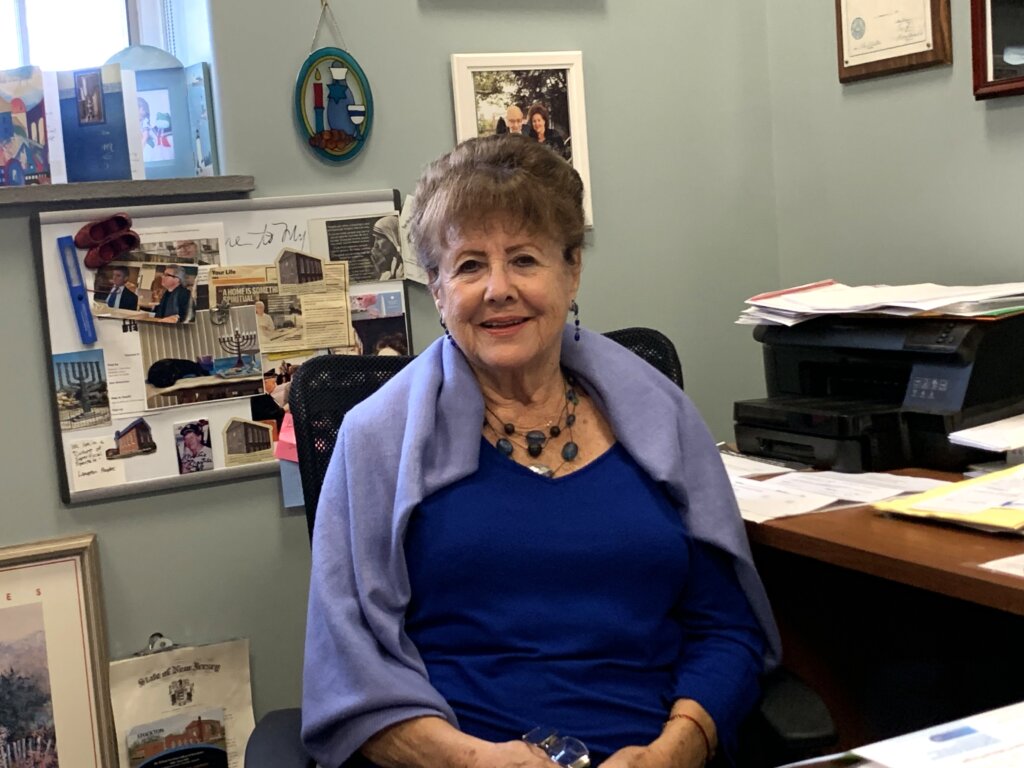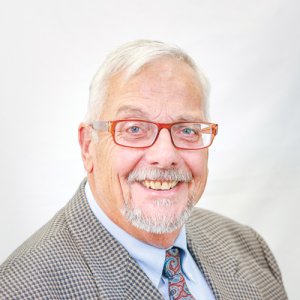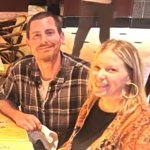WOODBINE – Jane Stark has been fighting antisemitism for more than 40 years.
Stark, the executive director of the Sam Azeez Museum of Woodbine Heritage, believes that education is one of the keys in that battle.
And that the battle begins at home.
“Children are not born with hate or prejudice,” she said.
Stark and other Jewish leaders say education efforts are needed more than ever in light of the conflict between Israel and Hamas, and the antisemitism incidents around the nation and world that have resulted.
She believes a lack of education, coupled with poverty, are the root cause of many problems in the world. Besides becoming educated on issues that lead to racism and antisemitism, she believes people have to be personally accountable for their own actions.
“Stop condemning,” she said. “Set an example. Show courage. And focus on what’s happening with humanity.”
Stark started combatting antisemitism 40 years ago with her involvement in recording the oral histories of Holocaust survivors. She was the general manager of Channel 40 when the Jewish Federation asked her to help with an event on the history of survivors.
She said the program ended up collecting 72 stories that are archived at Stockton University’s Holocaust Center, at Yale University, which partnered on the project, and at the National Holocaust Museum in Washington, D.C.
She believes that without the program many survivors would not have come forward and told their stories, and many of the adult children of survivors would not have heard their parents’ accounts.
Her work continues at the Sam Azeez Museum of Woodbine Heritage, which is a reminder of the community’s Jewish roots and is also the Woodbine Instructional Site for Stockton University,
Stark said Woodbine was settled by Russian Jews in 1891 at the invitation and philanthropy of German Jewish industrialist Baron Maurice DeHirsch.
Woodbine, according to the Stockton University website, “was begun as an agricultural experiment, to allow the Russian Jewish immigrants to become ‘of the land.’”
Stark said that Woodbine existed as a place free of antisemitism and prejudice for decades. In the 1920s, other people, non-Jews, started to settle in Woodbine, but that the community remained without hostility toward those who were different. She recalled speaking to a Black woman, a fifth-generation Woodbine resident, who told her she never experienced racism until she left Woodbine and went to college.
Stark, 80, grew up in western Pennsylvania. She said there was antisemitism there when she was growing up, but it was more subtle than what people are seeing these days. There have been recently televised images and news reports about supporters of Israel being physically attacked or having to take refuge.
She said when she was young she learned that certain people had preconceived, stereotypical ideas about Jews.
“I heard people say things that suggested all Jews had big noses and swarthy skin,” she said.
Stark said someone once asked her, “Where did you get your nose?” because she didn’t have what the person considered a Jewish nose.
“From my mom,” she said.
Stark said that after a certain age she always wore a pendant with her Hebrew name, which caused someone to remark, “Are you really one of those?”
She recalls people believing the notion that Jews and other ethnicities were “all alike.”
She said time does not necessarily make things like antisemitism go away. Her granddaughter, a 2017 Ocean City High School graduate, attended Hebrew day school before attending OCHS. In her first week there, boys started rolling pennies at her.
When she asked them why, one answered, “Well, you are a Jew, aren’t you?” Roughly 10 years earlier, a student at Lower Cape May Regional High School told a similar story about students tossing pennies at him from the windows of the school bus.
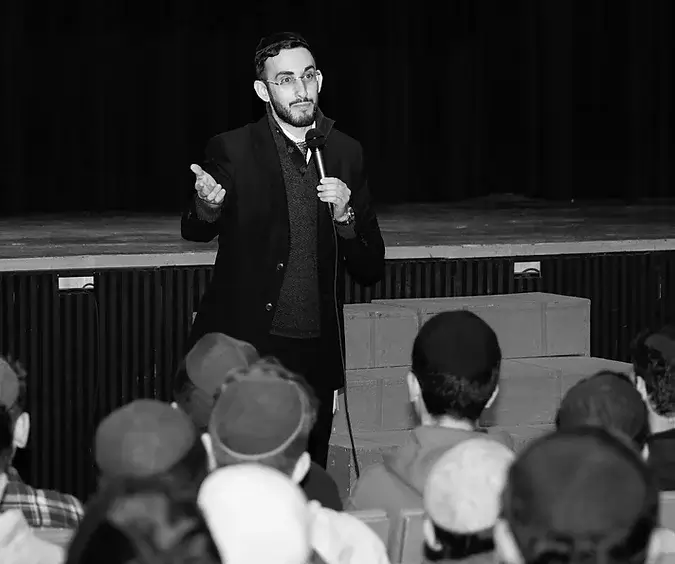
Ari Blau is now 34 and a rabbi who teaches Torah. He remembers all of these incidents, which began on the first day he showed up at LCMRHS wearing a kippah (yarmulke) and tsitzit (tassels or fringes worn by Jewish men) and he immediately became a target of antisemitism. Blau said one student drew a swastika on his locker, and students would toss pennies at him from the school bus windows.
He said he developed a couple of coping strategies to deal with antisemitism. One was to develop friendships with Black classmates, who also faced intolerance, he said. He also developed a sense of humor.
“I found the kid who drew the swastika on my locker and told him he should have drawn it larger so I could spot my locker more easily,” Blau said. “And I told the kids throwing the pennies, ‘Throw quarters – they hurt more.'”
Blau joked that kids throwing money at him helped put him through college.
Where do high school students learn age-old stereotypes?
“At home,” Stark said.
Stark said there are stereotypes about all ethnicities, but antisemitism is a pervasive, underlying thing. She said as you pull back the layers you can discover causes of antisemitism.
“My mother said what is in you has to come out. Latent hatred will be revealed,” she said.
Abraham Foxman, who served as the national director of the Anti-Defamation League for 28 years, said he is witnessing a change in the way people react to Israel.
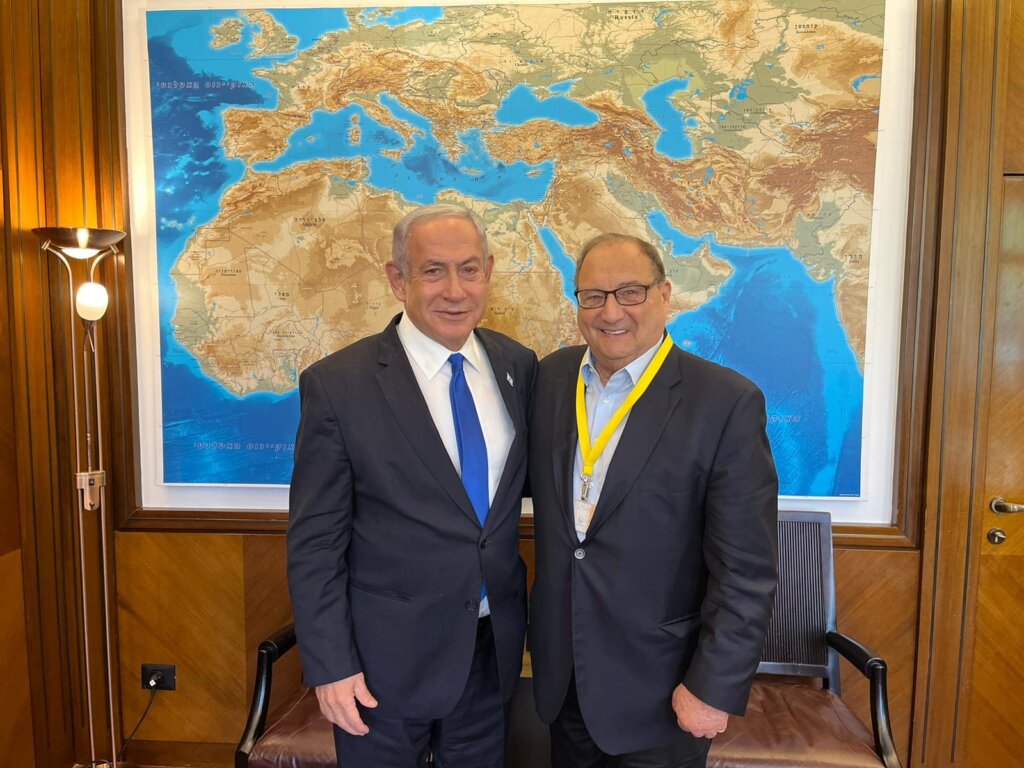
“When did anti-Israel cross over to antisemitism?” he asked. “People now equate Jews and Israel. When you protest Israel in front of a synagogue it’s antisemitism.”
Foxman said not all Israelis are Jews. He said 20% of Israelis are Arabs. He said people have the right to express a pro-Palestinian view in the United States, but he has seen images of people taking out their frustration and anger on Jewish students on U.S. campuses.
Stark, who has traveled to Israel several times, said there are Arabs who live and work in Israel and live peaceably with their Jewish neighbors.
“I have sat in the home of a Palestinian and was offered tea and cookies, and we talked about hate and disagreements, but they never said they experienced oppression,” she said.
Foxman said there would still be antisemitism in the United States regardless of what is happening with Israel.
“Every year the largest number of religious hate crimes are against Jews,” he said. “Antisemitism is a disease without an antidote or a vaccine.”
Foxman said 60% of all religious hate crimes are against Jews. He said antisemitism comes from all sides – the right, the left, Christians, and Islam. He said everyone had to scapegoat someone, and for the most part it has been the Jews. He said Mark Twain once took a trip to Europe and later wrote that all people hated the Jews.
“Why? If we knew why we could come up with an antidote,” Foxman said. “There is no why. People have their own political reasons. Fascism killed Jews. Communism killed Jews.”
For Blau, the reason is not as mundane as looking for a scapegoat. He said the Jewish people were given the Torah on Mount Sinai. Sinai is similar to another Hebrew word – sinah – which means “hatred.” He said the Jews were led out of Egypt for one purpose – to receive the Torah – and he said he knows antisemitism started there at Mount Sinai.
“It was a fact that the second the Jews received Torah they would be hated,” he said. “When other people see Jews, who represent what is moral, right and wrong, things God said we should do and not do, people hate.
“As long as you exist you can put me down for my morals. It’s a very scary thing.”
Foxman, however, said it has not been so bad in the United States: In the last 100 years or so only three Jews were killed because they were Jews. He said the United States is unique in that for many years people learned to live with each other, be civil, and control themselves. He said in this country you can be a bigot, but you pay a price.
One modern problem, he said, is the internet, where people can say anything that legitimizes hatred.
“We’ve lost civility,” he said. “It’s a battle between free speech and civility, and I credit Trumpism. He broke all the taboos. Media became fake news, but it’s also a medium to educate.”
Foxman said education is needed to combat antisemitism. He said for a long time the Jewish population could count on the support of the educated, that it was the uneducated who held biases. Then, after the beginning of Israel’s current conflict with Hamas, Jewish people woke up to find that the educated were also biased.
Still, he advocated long-term education as a means of fighting antisemitism.
“Education – that is the key,” he said. “You can be infected with hatred in a nanosecond, but it takes a long time to rid people of hatred.”
Blau feels people need to consider how and why they feel the way they do about Jews.
“For anyone reading who is not Jewish, who feels some ill feelings toward Jews as a whole, take a second, maybe do some research, find out how many things Jews have contributed to the world; from medicine, technology, and things we use day to day in your homes, so much was created by Jews” he said. “No comparison and contrast, just think. Jews create and give so much to this world.”
“For a Jew who is not religious and feeling anti-Israel, stop and take a second. Did you ever think what it meant to be a Jew? Being a Jew means there is a Creator of the World, and he created you as a Jew. What does that mean? We all have a purpose in life. You, as a Jew, have a purpose. Find out what that purpose is.”
“That’s the main thing,” Blau said.
Contact the author, Christopher South, at csouth@cmcherald.com or 609-886-8600, ext. 128.

